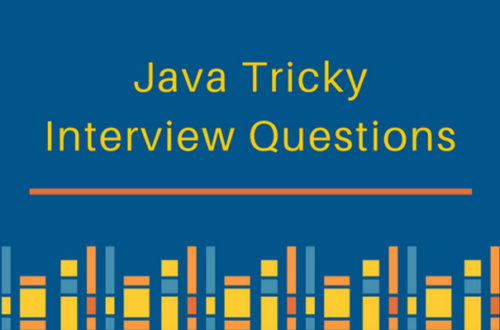After working for quite some time at the same company, you decide it’s time to look around for another job. And there’s nothing wrong with that.
You want to develop yourself as a person, but you’re also looking for a great opportunity to develop your skillset. Preferably, in a whole different environment.
So, you start looking for job applications on the internet. After spending hours looking for the perfect job application, you finally found it. The job hunt was successful. This has got to be the one!
You decide to not waste any more time and you start writing your motivational letter. Obviously, you are the most suitable candidate for this job, because you’re awesome.
After waiting for several weeks, your phone suddenly rings. An anonymous number is calling you. You’re a little hesitant to pick it up, but you decide to do it anyway. And, luckily, because you just got the great news that you can come in for a job interview.
Euphoria starts running through your body. Just like the nerves… Because how do you make sure that you nail the job interview? And how do you prepare for the job interview?
In this article, I will show you how you can prepare yourself for a job interview when applying for your dream job as a software developer.
Preparing for the Job Interview
By preparing yourself well for the job interview, you can give yourself a head start compared to the other applicants. There are a couple of things that you can do before you actually have the job interview.
Website
A good way to start is by taking a looking at the website of the company that you’re applying to. What do you see on the website? Can you see some of the tools that are being used? Who are there customers? What are employees dressed like?
A good tip: check if the company has a YouTube channel and if so, watch some of their videos. These YouTube videos are a great source of information and will help you get some feeling with the company.
Study your resume
Any work experience or skills that you have listed on your resume can be brought up during the interview. Your resume is all the interviewer has to go by to get to know you.
They may pick things out from it and ask you to elaborate. So, you really need to study your resume and know everything about it.
Even if you have a previous job listed that was many years ago. You need to be able to explain what your job looked like and, preferably, the responsibilities that came with that job.
Tech stack
Last but not least, you will need to know all the ins and outs of your tech stack, which is preferably the one that is being used at the company you’re applying for.
The largest part of the job interview is that you will be asked about your technical skills. Really prepare yourself on the technical part and be prepared to take a deep dive into the technologies that you are using.
Frequently Asked Questions
Just like most websites have an FAQ section with all the standard questions, you could argue that the same is more or less true for a job interview. Some questions are asked a lot during job interviews for a software developer position.
Here is a list of seven frequently asked questions that you can expect during the interview.
Additionally, we’re going over the reason why these questions are being asked. Think thoroughly about these questions before you have the job interview.
1. What does the development process in your current job look like?
With this question, the interviewer is trying to understand how you would fit into their organization’s work environment and process.
The interviewer wants to know all about the development process at your current job to see if there are any matches with their development process. The more similarities between the development processes, the more likely you will be a good fit.
2. Would you qualify yourself as a junior, mid-level, or senior developer? And why?
The interviewer asks this question to get a grasp of how you look at yourself as a software developer. Being a junior, mid-level, or senior developer doesn’t solely have to do with the years of programming experience that you have. So, think about this question thoroughly.
If you tend to be under-qualified for the job, how are you going to catch up? And if you tend to be over-qualified, aren’t you looking for a bigger challenge? These are questions that you can expect.
3. Tell something about a difficult software problem and how you solved it
This is a good opportunity for you to dig deep into a software development problem that you’ve faced. This is the perfect opportunity to show the interviewer that you actually know your stuff. This question also gives the interviewer a scope of the problems you’re working with.
If the most difficult software problem you solved is a form validation error, while you are applying for a senior developer job, there is probably a gap between expectations and reality of the interviewer.
4. How would you describe yourself?
When the interviewer asks you to describe yourself, they’re looking for information about how your qualities and characteristics align with the skills they believe are required to succeed as a software developer within their company.
There are a lot of ways that you can answer this question. Just make sure to prepare for this question because it is one of the most frequently asked questions during job interviews!
5. How much experience do you have with our tech stack?
This one is pretty obvious. The interviewer wants to know what experience you have with their tech stack. By having this question answered, the job interviewer can make an estimation of your knowledge and experience.
This is important because if you don’t have any experience with the tech stack, you probably need to get some kind of education. This requires a budget and is an instant investment that the company needs to make.
On top of that, you will probably not be able to do the same work as the rest of the software developers, which makes you less productive.
6. What do you want to achieve in your professional career?
This question gives you a chance to be honest and reflect on what you are looking for in your career. There is no right or wrong way to answer.
All the interviewer wants to know is if it makes sense. Will you stick around in the position for a reasonable amount of time? Are your ambitions reasonable and in line with the company?
You’re not expected to commit your entire life to the company, but the company also doesn’t want to expend resources on your training and path to success if you’re going to leave after a short time.
7. Have you ever contributed to open source?
The interviewer wants to see job candidates who are passionate about their work. A candidate should showcase their passion for development and talk about any projects they’re working on outside of work.




